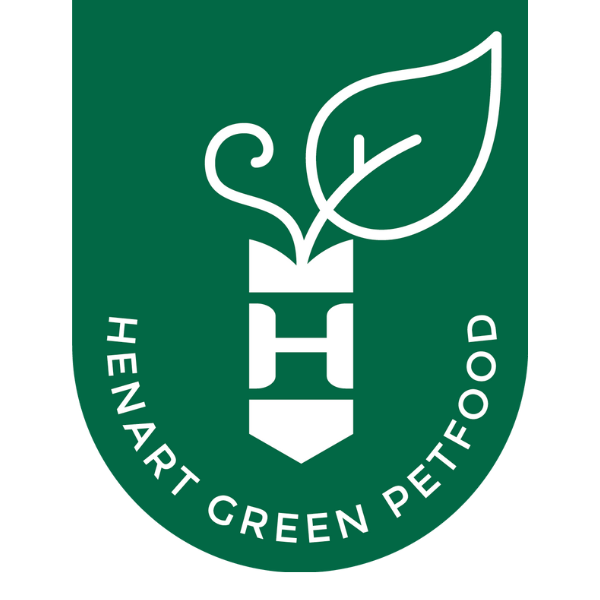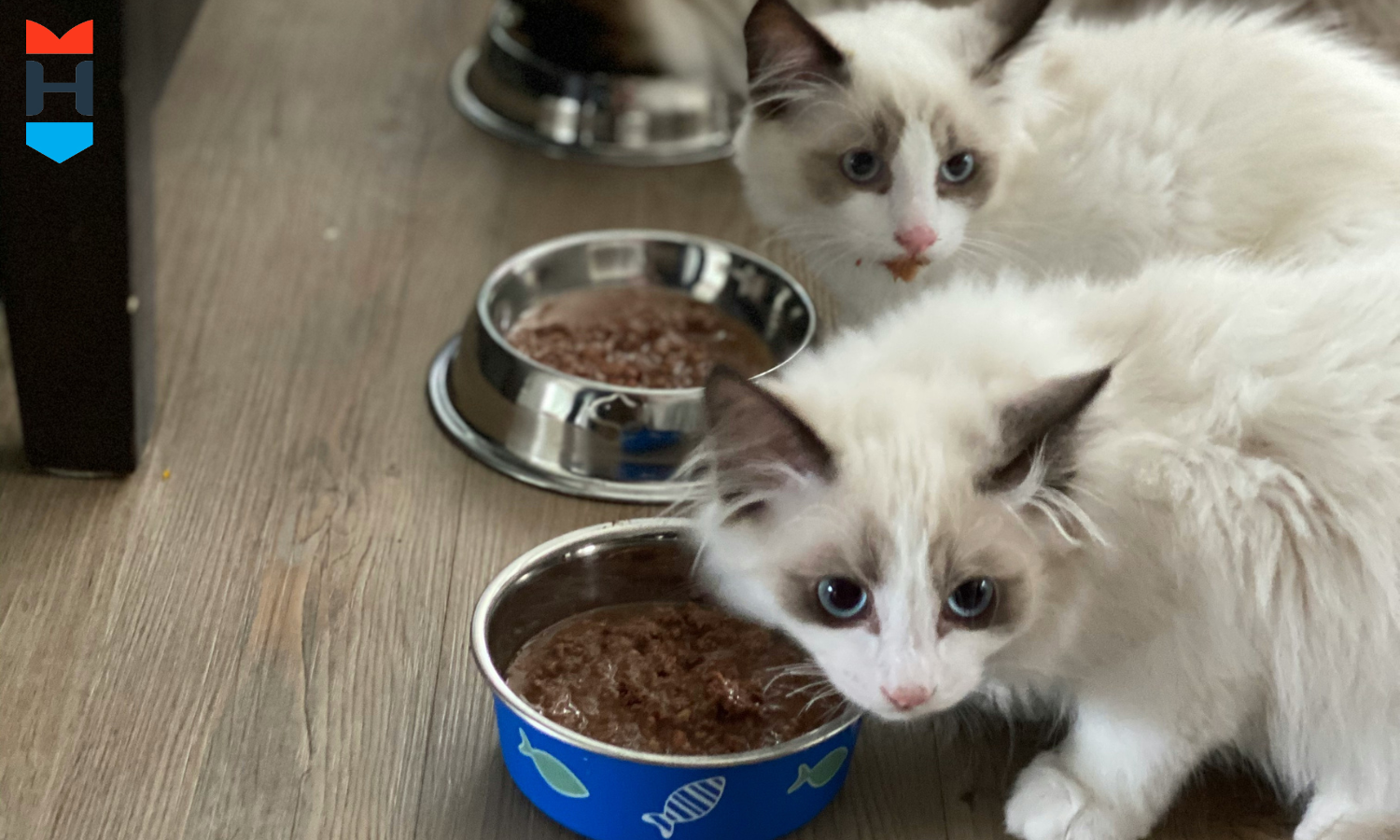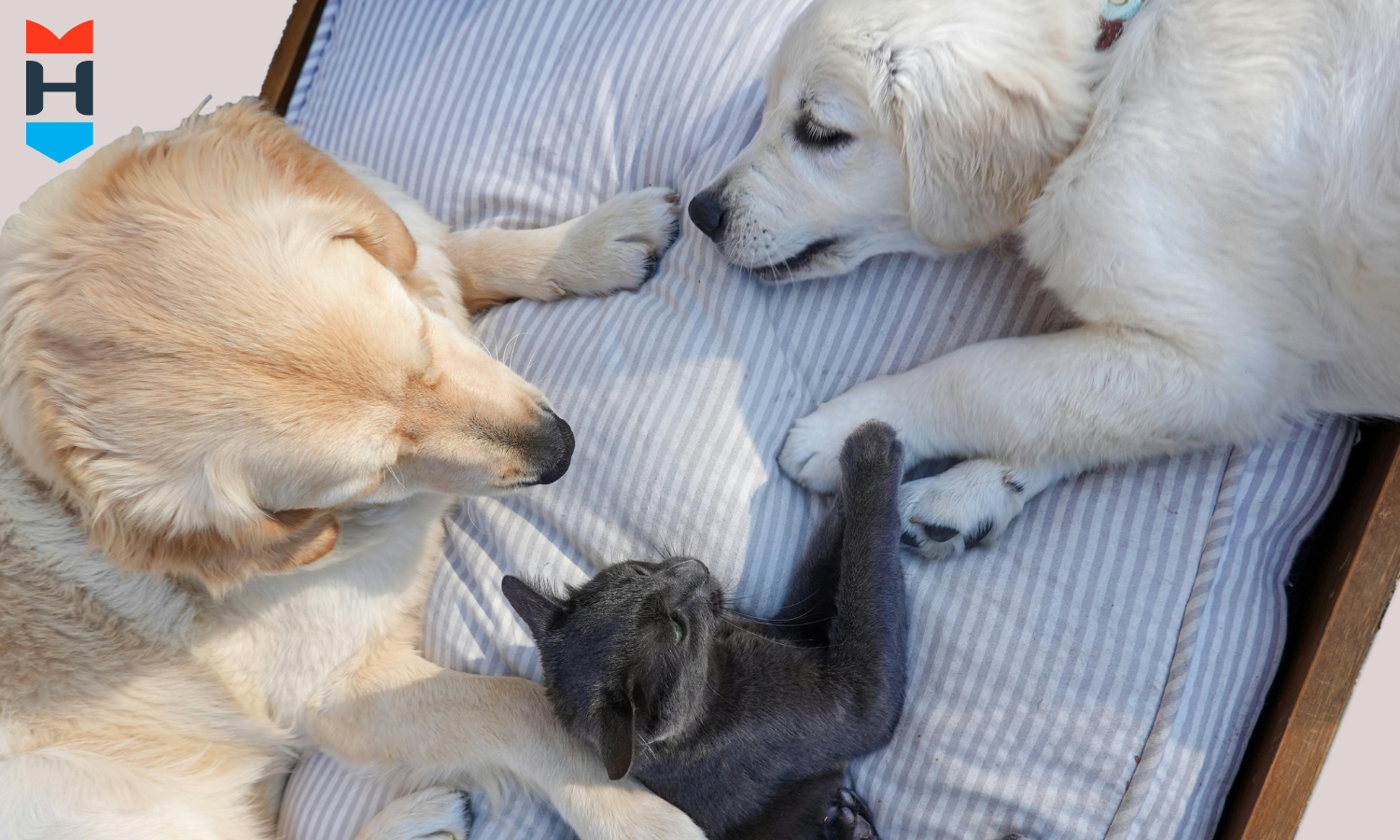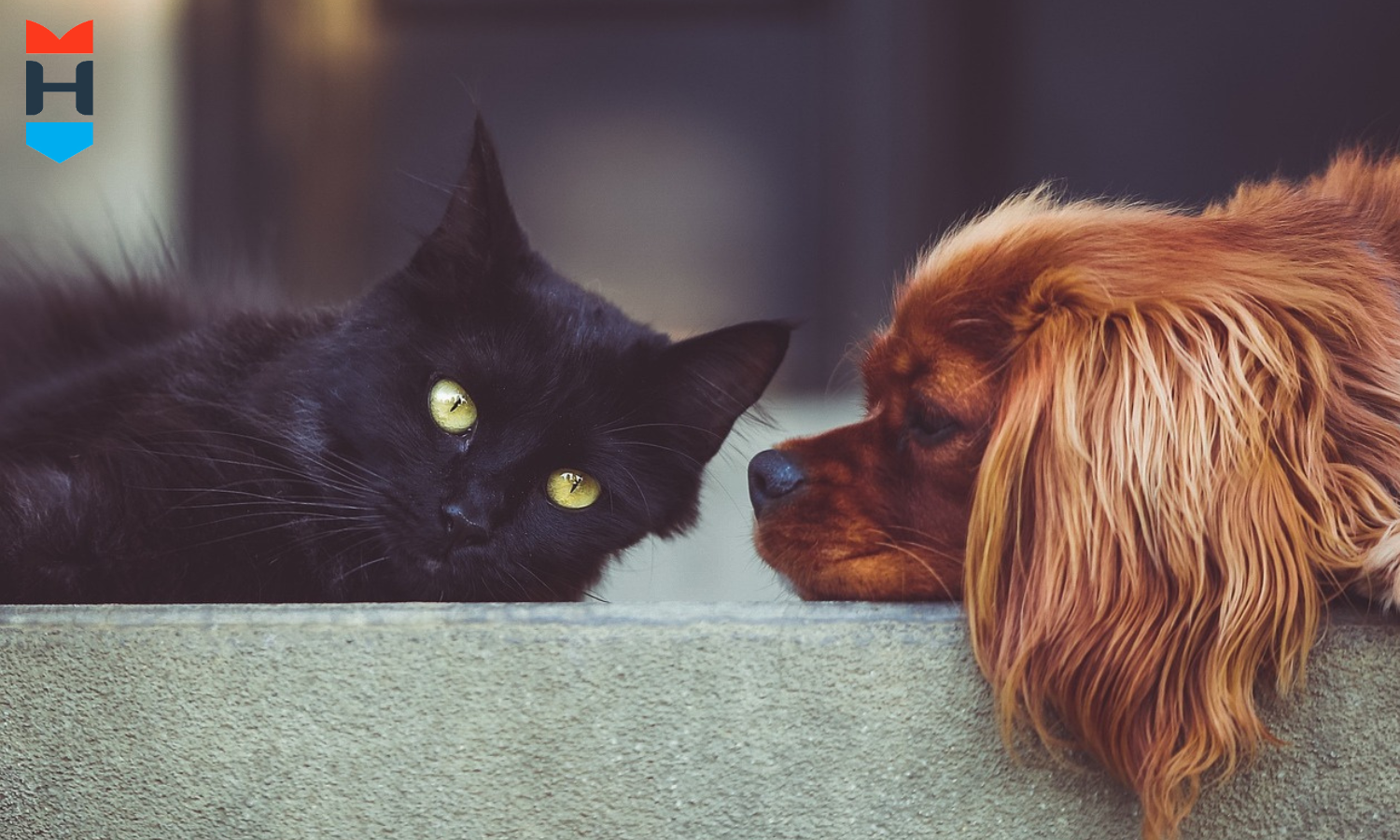Chronic kidney disease (CKD) is one of the most common health problems in cats – especially in old age. The diagnosis can be alarming at first, but early detection, understanding its underlying causes, and addressing possible treatment options can contribute significantly to your cat's quality of life. Proper nutrition plays a key role: It should be balanced, nutrient-rich, and tailored to the animal's specific needs. This is where HenArt comes into play – with innovative recipes based on plant and insect proteins, specially developed for holistic care.
Chronic kidney disease in cats – simply explained
Chronic kidney disease is a gradual process in which the kidneys gradually lose their function. Older cats are particularly affected, often influenced by a combination of age, genetic predisposition, and diet. The kidneys perform several vital functions in the body: They filter waste products from the blood, regulate blood pressure, and maintain a stable electrolyte balance.
When these functions are no longer reliably performed, harmful substances accumulate in the body – sometimes with serious consequences for well-being. Initial signs often go unnoticed, so early diagnosis is crucial. CKD can be reliably diagnosed with blood tests that measure levels of urea and creatinine, among others.
The Symptoms
Detecting signs of chronic kidney disease early isn't always easy—especially because the symptoms often appear gradually and go unnoticed for a long time. Nevertheless, it's worth paying attention. Typical signs can include:
- Increased thirst and urination
- Decreased appetite and weight loss
- Vomiting and diarrhea
- Unpleasant breath or changes in the mouth, such as ulcers
- Lethargy and weakness
Since many of these symptoms can also occur with other diseases and often only become apparent in advanced stages, regular veterinary checkups are particularly important. They enable early diagnosis—and thus better chances of taking targeted countermeasures.
Treatment options
Once a cat is diagnosed with CKD, treatment usually involves a combination of dietary changes, hydration, and medication.
Dietary management
Nutrition plays a crucial role in the treatment of CKD. As kidney function declines, a cat's nutritional needs change. Therefore, it's important to choose a diet that contains less protein and phosphorus, while still being high-quality and balanced.
Hydration
Adequate hydration is especially important for cats with CKD. These animals are often affected by dehydration, which can worsen their symptoms and negatively impact the course of the disease.
Medications
Depending on the stage of the disease, the veterinarian may prescribe medication to help relieve symptoms and slow the progression of the disease.
The role of HenArt's complete and balanced diet
At HenArt, we understand the complexities involved in managing chronic conditions like CKD in cats. Our innovative complete and balanced diets, which feature plant-based and insect proteins, are specially designed to meet the unique needs of cats suffering from CKD. Here’s how:
Less phosphorus
Our plant-based feeds contain significantly less phosphorus than conventional meat-based products. High phosphorus levels can place additional strain on the kidneys, which is why our recipes are designed to relieve kidney strain and support their function.
High nutritional value
Insects, such as mealworms, are particularly rich in essential fatty acids and proteins. They are also more kidney-friendly than traditional protein sources, thus contributing to the health of cats.
Balanced proteins
Our complete foods offer a balanced blend of amino acids from both plant and insect sources, ensuring that cats receive all the essential nutrients to support their health and vitality, even with reduced protein intake.
Digestibility
The digestibility of our food is optimized to minimize the strain on the kidneys. This is the only way nutrients can be absorbed efficiently without placing additional strain on the kidneys.
Special supplementation
We've also incorporated eggshell membrane (ESM) into our mealworm insect food. ESM is rich in glycosaminoglycans, collagen, and proteins, which aid in tissue repair and, thanks to its anti-inflammatory properties, can support kidney health.
What to do – and what not to do
When treating cats with CKD, there are some strategies that can be truly helpful. However, there are also things that are best avoided. Here's a brief overview:
Dos
✅ Regular vet visits
Check-ups with your veterinarian are crucial to regularly monitor kidney function and respond to changes early.
✅ Switch to a tailored diet
Make sure to switch your cat to HenArt's specially formulated food, which is tailored to their CKD needs.
✅ Encourage hydration
A water fountain or wet food can help increase fluid intake.
✅ Monitor symptoms
Keep an eye on your cat's behavior and any changes. Any abnormalities should be discussed promptly with your veterinarian.
Don'ts
❌ Excessive protein
Do not feed your cat food that is high in protein, as this can put additional strain on the kidneys.
❌ Skip medication
Strictly follow the treatment plan prescribed by your veterinarian – this is crucial for treating CKD.
❌ Sudden changes in feed
A rapid transition to a new food can lead to digestive upsets. Make sure to make the transition slowly.
The advantages of the HenArt Eggshell Membrane®
An important component of our nutrient-rich food at HenArt is eggshell membrane (ESM), which offers a variety of health benefits:
1. Joint health
ESM is known to support joint health. It can help relieve arthritis and mobility problems, especially in older cats with CKD.
2. Tissue repair
The glycosaminoglycans in ESM promote tissue repair – a crucial factor in the treatment of degenerative diseases.
3. Anti-inflammatory properties
ESM contains natural compounds that have anti-inflammatory properties and can reduce inflammation in the kidneys and other areas of the body.
These beneficial properties not only contribute to kidney health but also improve your cat's overall well-being. That's why our specialty food at HenArt is an excellent choice for pet owners who want to provide their cat with the best possible support.
Researching novel proteins
Research increasingly shows that novel protein sources such as insects offer a sustainable and nutritious alternative to traditional protein sources in animal feed. Studies demonstrate that insect proteins are not only a valuable food source but also have positive environmental impacts. They require less land, water, and feed, while producing fewer greenhouse gases.
At HenArt, we go beyond simply developing effective pet foods. We are also committed to using innovative, sustainable ingredients that not only meet our pets' nutritional needs but also contribute to the health of our planet.
Conclusion
Chronic kidney disease in cats presents a significant challenge for pet owners. However, with education, early detection, and a targeted diet, the progression of the disease can be significantly mitigated. HenArt's balanced foods offer tailored solutions with high-quality ingredients, including plant and insect proteins.
With HenArt, you're investing in a diet that supports your cat's kidney health and overall vitality. Remember to work closely with your veterinarian to get the best results for your cat. Together, we can ensure our feline companions live happy and healthy lives—even with a chronic condition like CKD.




Leave a comment
All comments are moderated before being published.
This site is protected by hCaptcha and the hCaptcha Privacy Policy and Terms of Service apply.